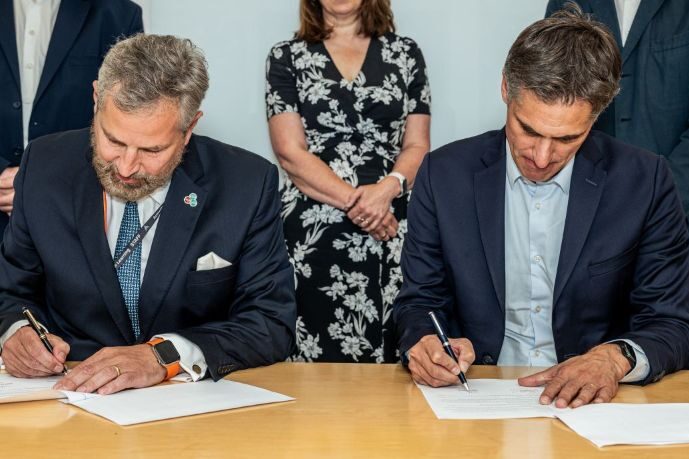Diploma in Teaching (FE & Skills) Update: A Sector Led Win

The Diploma in Teaching (Further Education & Skills) is the newest qualification for new teachers in the further education and skills sector. Introduced in September 2024, it replaced the Diploma in Education and Training (DET), promising a framework more aligned with the evolving demands of teaching professionals and the learners they serve.
As with any ambitious reform, real-world implementation can reveal friction points. One such challenge was the requirement for trainees to complete a minimum of 20 hours of live remote delivery during their teaching placement. Following strong feedback from the sector, the Department for Education (DfE) has amended the framework, demonstrating a responsive and collaborative approach to policymaking.
The Original Requirement: A Well-Intended Challenge
This article explores the significance of this change, its implications, and how it reflects the broader updates introduced in the December 2023 revision of the full qualification framework.
The original framework required that trainees undertake: “…a minimum of 20 hours of live remote delivery, alongside a minimum of 80 hours of face-to-face delivery.”
This was part of a broader goal to ensure that teachers are equipped for blended and digital learning environments, a need made more urgent by the pandemic-driven shift to online education. However, many providers found this fixed requirement difficult to implement, especially in settings where digital infrastructure, learner access, or programme structures didn’t easily accommodate live online teaching.
The Revised Guidance: From Fixed Hours to Flexible Readiness
The updated version, published in March 2025, replaces the fixed requirement with a more flexible and inclusive expectation: “ITE programmes are expected to equip trainees with the knowledge and skills required to teach high-quality lessons remotely and online… [this] could be achieved via supervised sessions, appropriate use of bespoke online synchronous or asynchronous learning packages, or through other methods that providers and their partnerships determine.”
This shift allows for:
- Greater autonomy for providers to design digital teaching experiences tailored to their context.
- Recognition that remote teaching competence can be developed through a variety of methods, not just live sessions.
- Assurance that all trainees are still digitally prepared, without compromising programme feasibility.
- Structural and Content Changes Across the Framework
Beyond the remote teaching amendment, the December 2023 framework introduced broader refinements:
Module Structure – A reorganised structure offering five core units.
Assessment Evolution – Continued emphasis on competency-based assessment, with professional discussions replacing some written tasks and Observations remaining central (10 minimum), but with added flexibility in delivery format.
Inclusivity and Professional Language – The introduction of the term “Learner Dynamics” replaces “Learner Needs,” promoting a strengths-based, inclusive philosophy and a greater focus on embedding Equality, Diversity and Inclusion (EDI) and Sustainability throughout the programme.
Professional Practice Expectations – A required placement of at least 250 hours, including 150 hours of teaching, of which 100 must be subject-specific and a second non-teaching location, enhancing trainee exposure.
Implications for Providers and Trainees
This latest change is more than an administrative tweak. It reflects a values-driven shift in how initial teacher education (ITE) is understood:
For Providers: Greater flexibility makes compliance more manageable while upholding digital skill development.
For Trainees: Alternative digital teaching opportunities reduce anxiety and provide diverse ways to evidence competence.
For the Sector: This responsiveness reinforces confidence in the framework’s ability to balance rigour with realism.
A Sector-Led Win: Collaboration in Action
The amendment is a direct result of sector advocacy, with colleges, training providers, and awarding organisations highlighting the challenges of implementing a rigid 20-hour live remote requirement. The DfE’s willingness to listen and act is a model of responsive policymaking.
As stated in the official update: “Evidence suggests that a fixed requirement for at least 20 hours online teaching could impede effective delivery of programmes in some areas.”
This change showcases what’s possible when the sector speaks with one voice and when the government listens not just to policy ideals, but to practice realities.
Conclusion
The removal of the mandatory 20-hour live remote teaching requirement from the Diploma in Teaching (FE & Skills) framework marks a crucial moment in collaborative reform. It respects both the integrity of digital teaching competence and the diverse realities of provider contexts.
More broadly, the December 2023 and March 2025 updates demonstrate a forward-thinking qualification that continues to evolve, reflecting the professional standards, inclusive practices, and digital fluency required for today’s further education and skills workforce.
In short, when the sector spoke, the Department for Education responded, a win for teachers, learners, and the future of FE.
How will the Awarding Organisations respond (TQUK, City & Guilds, NCFE, QUALIFI, FAQ, PROQUAL, Focus Awards, NOCN, Ascentis, VTCT Skills and iCan)?
By Gavin Lumsden, Consultant, Teacher-Educator & Author











Responses